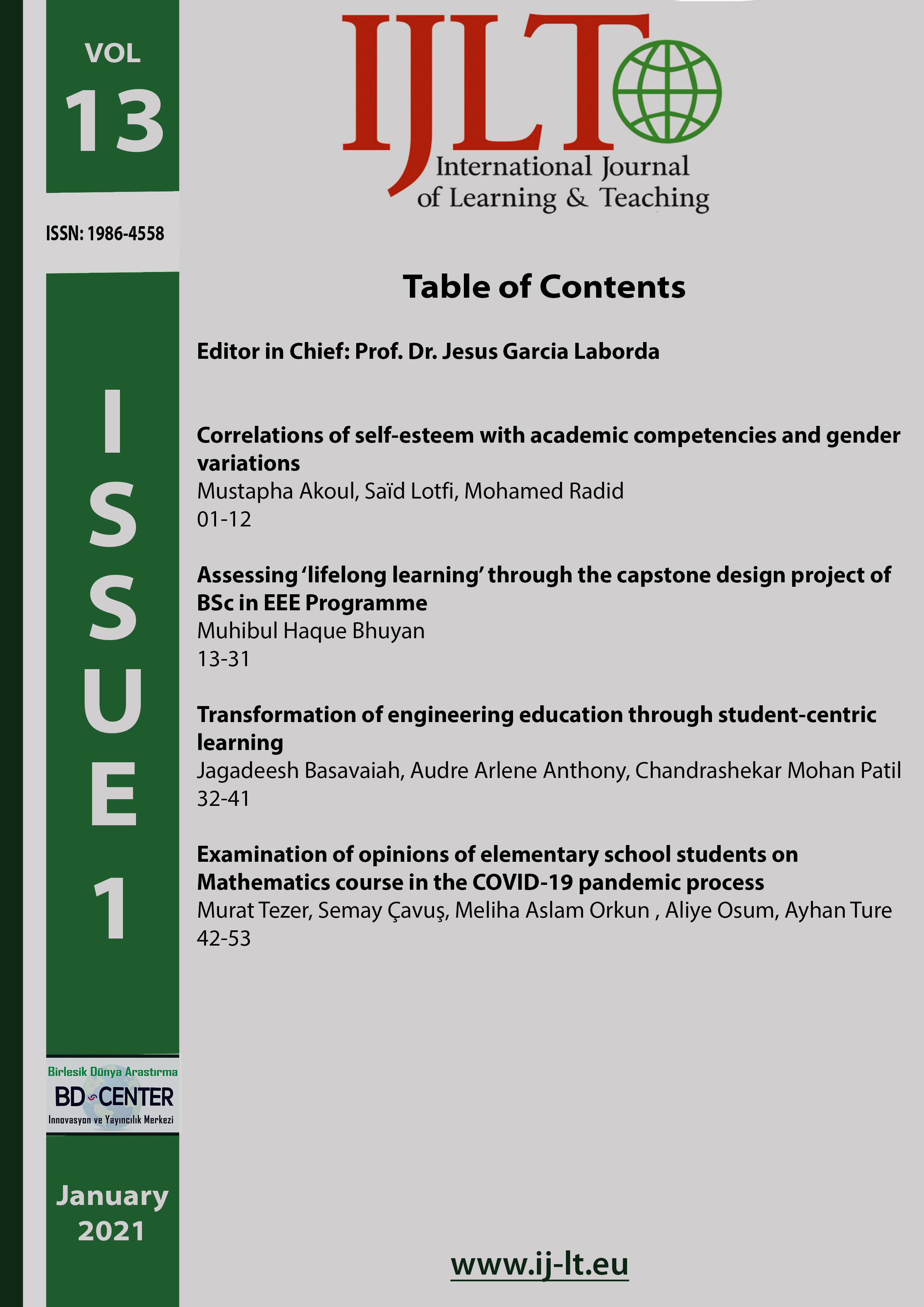Assessing ‘lifelong learning’ through the capstone design project of BSc in EEE Programme
Main Article Content
Abstract
Engineering education accreditation agencies have prepared a list of skills called programme outcomes (POs) or graduate attributes that a graduate must attain before his graduation from any engineering discipline. Of these POs, one of the important outcomes is lifelong learning. This skill is one of the most perplexing skills that graduates require in their professional careers. While most of these outcomes are measurable through the accustomed techniques, assessing lifelong learning is more challenging for faculty members and educators. Selecting a course to teach and assess lifelong learning is also a difficult job. The capstone design project (CDP) course may be an excellent means of transferring and strengthening the skills and proficiencies associated with lifelong learning. This paper explores how ‘lifelong learning’ as one of POs can be delivered, supervised, assessed and evaluated through the three CDP courses (EEE492, EEE494 and EEE496) integrated into the Bachelor of Science in Electrical and Electronic Engineering programme at Southeast University. Furthermore, this paper discusses about developing an appropriate assessment plan and rubrics to ascertain the achievement of these three courses in fulfilling this component of the accreditation. Evaluation data of the lifelong learning, assessed by the board of examiners during the final defence, is presented. Based on this, their achievements of the PO related to lifelong learning are discussed.
Keywords: Capstone design project, lifelong learning, OBE, PO assessment.
Downloads
Article Details

This work is licensed under a Creative Commons Attribution 4.0 International License.
Authors who publish with this journal agree to the following terms:
- Authors retain copyright and grant the journal right of first publication with the work simultaneously licensed under a Creative Commons Attribution License that allows others to share the work with an acknowledgement of the work's authorship and initial publication in this journal.
- Authors are able to enter into separate, additional contractual arrangements for the non-exclusive distribution of the journal's published version of the work (e.g., post it to an institutional repository or publish it in a book), with an acknowledgement of its initial publication in this journal.
- Authors are permitted and encouraged to post their work online (e.g., in institutional repositories or on their website) prior to and during the submission process, as it can lead to productive exchanges, as well as earlier and greater citation of published work (SeeThe Effect of Open Access).
